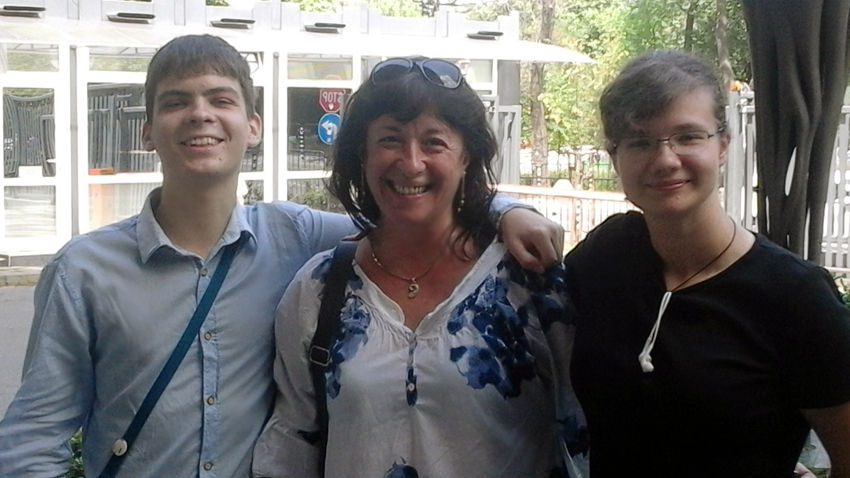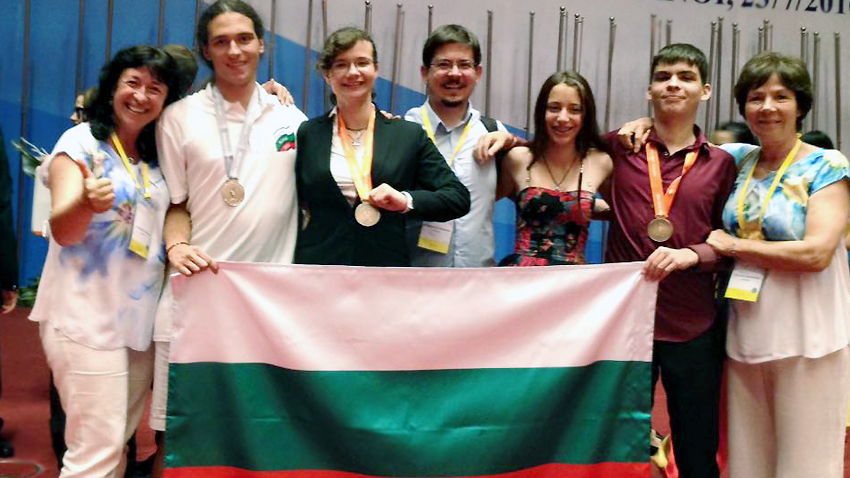The Olympic summer in Rio de Janeiro is in full swing, and we are all eager to see Bulgarian Olympic athletes winning medals. In the meantime, however, another breed of Bulgarian Olympians have been winning medals. They are the Bulgarian high school students who excel at international competitions in mathematics, biology, chemistry and other sciences. Every year close to fifty of them join 15 prestigious competitions. In 2016 Bulgaria has won the total of 67 medals.
All this is happening under the close guidance of the Association of the Leaders of Bulgarian Olympic Teams in Natural Science which has for the past 6 years been organizing specialized training in the respective subjects.
This year the members of the national team in biology were back from the International Biology Olympiad in Hanoi, Vietnam, with one silver and three bronze medals. Bulgaria has a long tradition in this field of science and was one of the six co-founders of the event back in 1989.

What is a biology Olympiad like? More from the national team's coach Associate Prof. Albena Yordanova:
„The International Biology Olympiad includes two big exams. The first is held in four laboratories where practical problems are solved. The second exam is about theory. Our team is expected to make use of up-to-date methods in biology that go far beyond what is studied at school. We attract already well trained young talents who are among Bulgaria's top young biologists.”
„We simply love biology”, says Nikolay Todorov, holder of a bronze medal from the International Biology Olympiad. More on the challenges of getting trained for success, from Victoria Hristova, another bronze medalist.
„We are students at the National High School of Mathematics and Natural Science in Sofia and we have extra classes in biology. In common schools biology classes are only twice a week, and there is no time for enough theory and practice. The Olympiad is at a very high level and this requires a lot of knowledge, long hours of training and perseverance, of course.”

Teachers' work is also vital for the success of students. One of them is a veritable phenomenon. This year's silver medalist Tsvetoslav Georgiev took up biology more seriously a year and a half ago. Until then he was only competing at mathematical Olympiads. Revisiting his success the tutors Associate Prof. Albena Yordanova, Associate Prof. Snezhana Tomova and Radoslav Alexandrov also report about problems they have to wrestle with:
„Unfortunately, the facilities we had two years ago are now nonexistent. The only option of our Olympians to come into touch with present-day science is to come to the Faculty of Biology at Sofia University. We are quite good in theory but practice is paramount. Therefore laboratories should be rebuilt”, contends Albena Yordanova.
Young biologists plan to go to universities abroad after they finish school in Bulgaria. And they will probably pursue their hopefully brilliant careers away from home. So, to be able to motivate some of them to stay in this country, the government must invest much more in talented kids. This way they will become the next generation of innovative scientists and guarantors of Bulgaria's economic progress.
English Daniela Konstantinova
Photos: Bozhidar Yanev and private library
The diplomas from the 11th master class in radio journalism of the Bulgarian National Radio – BNR Academy were awarded at a solemn ceremony on November 14. The lectures and practical classes in modern forms of radio journalism build on the professional..
Italy investigates claims of hunting of people in Sarajevo in the 1990s The prosecutor's office in Milan has launched an investigation into shocking reports of organized "sniper safaris" in Bosnia during the war in..
Albania and Bulgaria have joined forces in the name of one more child being born. In the late afternoon of November 7, the first-ever free reproductive medicine checkups, led by Bulgarian specialists, began in the Albanian town of Korçë — a region..

+359 2 9336 661
